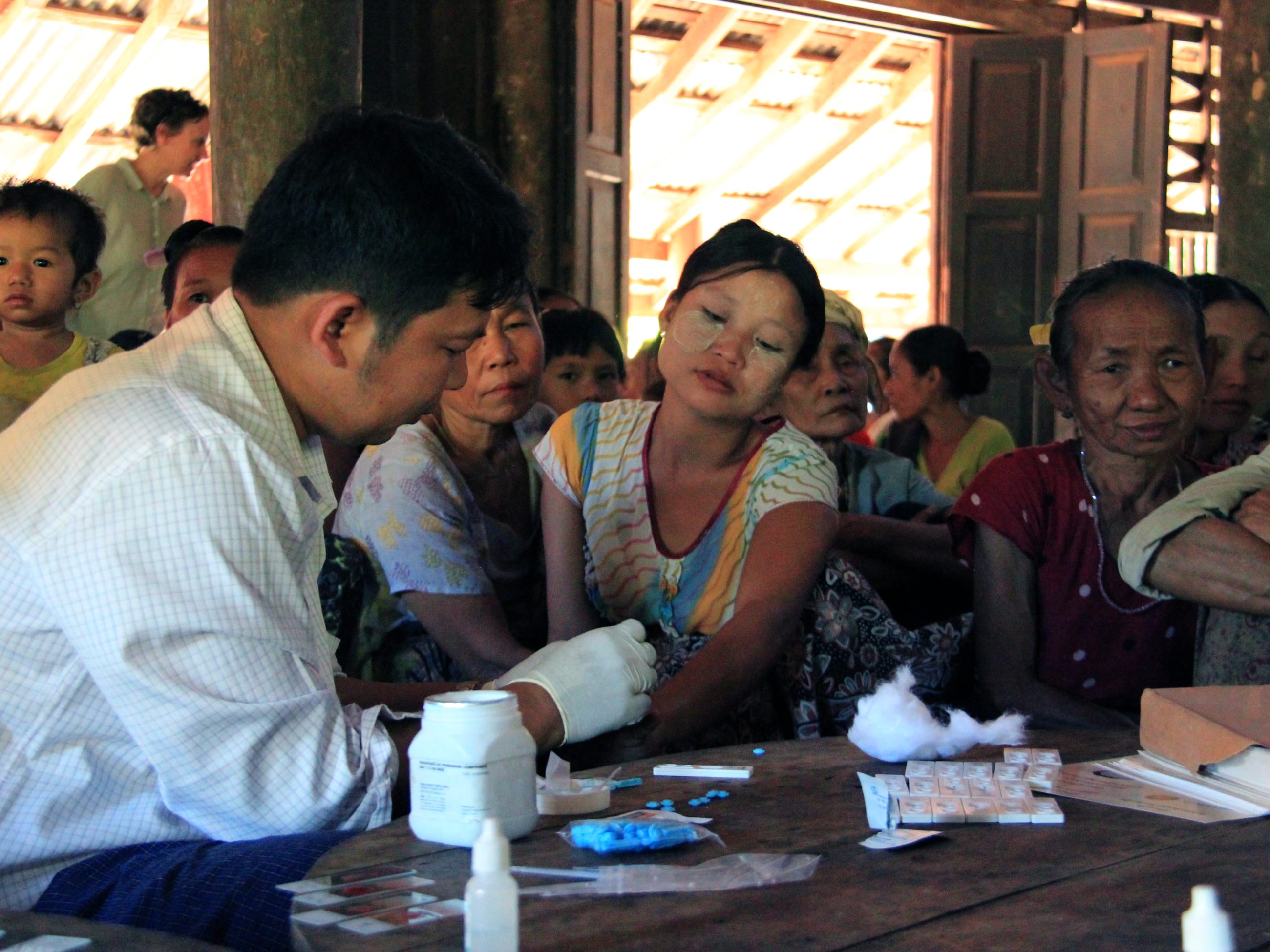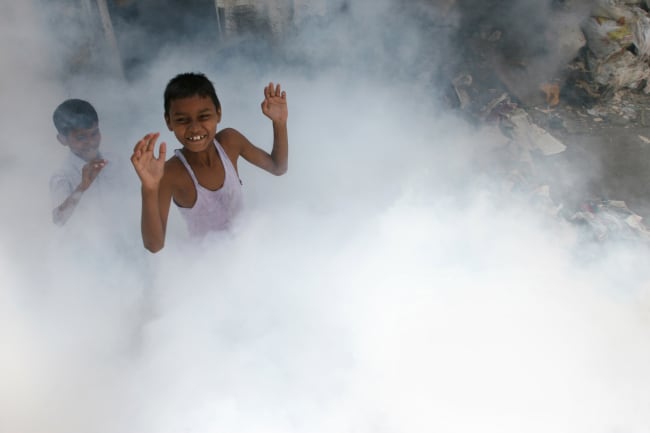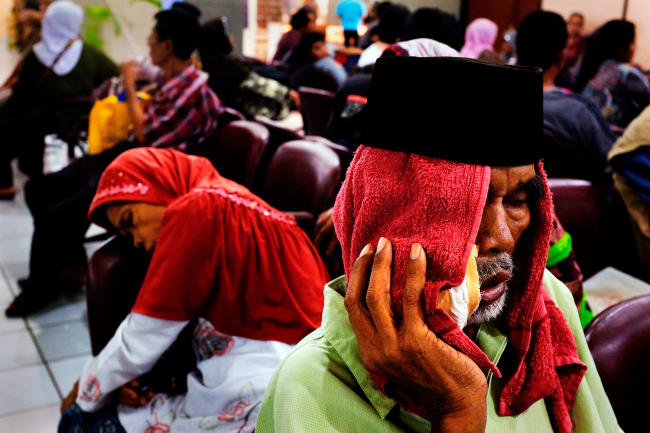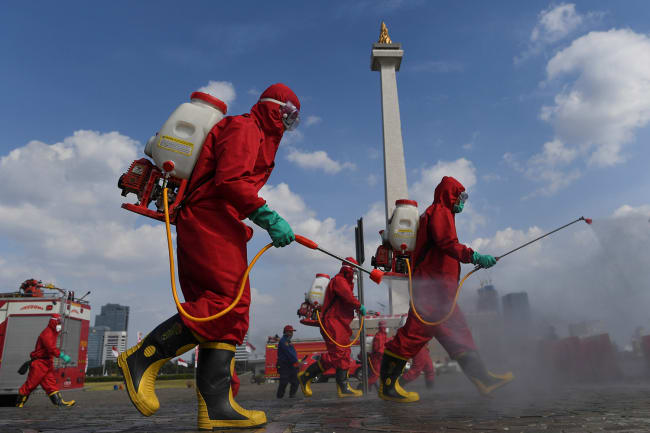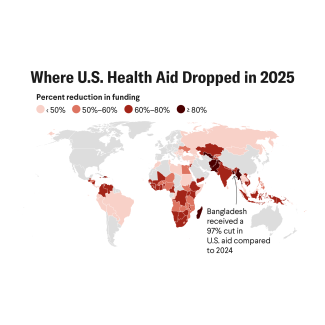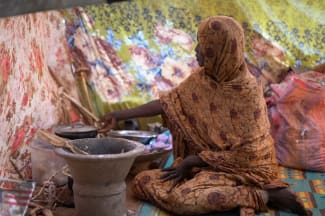Chris Beyrer is an epidemiologist who has worked on the front lines of HIV/AIDS, malaria, and COVID-19 treatment and research in Southeast Asia, sub-Saharan Africa, and Eastern Europe and Central Asia for more than thirty years. He is the current director of Duke Global Health Institute at Duke University and the former president of the International AIDS Society from 2014 to 2016.
He has worked on infectious disease control in Myanmar since the early 1990s and has written numerous publications about outbreaks in the country. Malaria is endemic to 291 of 330 townships in Myanmar. In this interview with Think Global Health, Beyrer speaks about the ongoing civil conflict that is fueling a new outbreak of drug-resistant malaria in Karenni State.
□ □ □ □ □ □ □ □ □ □ □ □ □ □ □
Think Global Health: What is causing the uptick in malaria in Myanmar?
Chris Beyrer: I've been involved with health and human rights issues in Myanmar since 1992. And I've seen many military regimes and attempts to control malaria and other infectious diseases. But what has happened now is that since the coup of February 2021, the country has descended into a civil conflict between the military and the population—including many of the ethnic groups that are in malaria endemic areas. The International Committee of the Red Cross just put out a report that seventeen million people in Myanmar are in need of humanitarian assistance.
Karenni has seen a 1,000 percent increase in confirmed malaria cases.
Think Global Health: How is the health system holding up after the coup?
Chris Beyrer: The public health system has broken down. The head of the immunization program, a physician who was leading the COVID effort, was detained by the military. They actually arrested her seven-year-old child as well. The entire COVID program broke down after the coup. Added to that are a number of infectious disease outbreaks, including this significant increase in malaria.
Open fighting is everywhere and the military uses airstrikes against civilian targets all over the country. How little attention the world is paying to this humanitarian health and human rights crisis is striking. It's not surprising that malaria has reemerged. It's not surprising that childhood preventable vaccine preventable diseases are surging. This is what happens when a military is at war with its civilian population.
Think Global Health: What is the severity and where is the outbreak happening?
Chris Beyrer: Karenni is a large, rainforest province on the Thai-Myanmar border where conflict with the ethnic groups living in forested areas is ongoing. Karenni has also seen a 1,000 percent increase in malaria cases, a big outbreak. These increases are confirmed clinical cases reported from hospitals and clinics, both inside the country and along the border.
For context, high rates of malaria used to be typical but had come under control. The numbers were low, so this increase is significant, though it's still well below what it was twenty years ago. That distinction is important to understand.
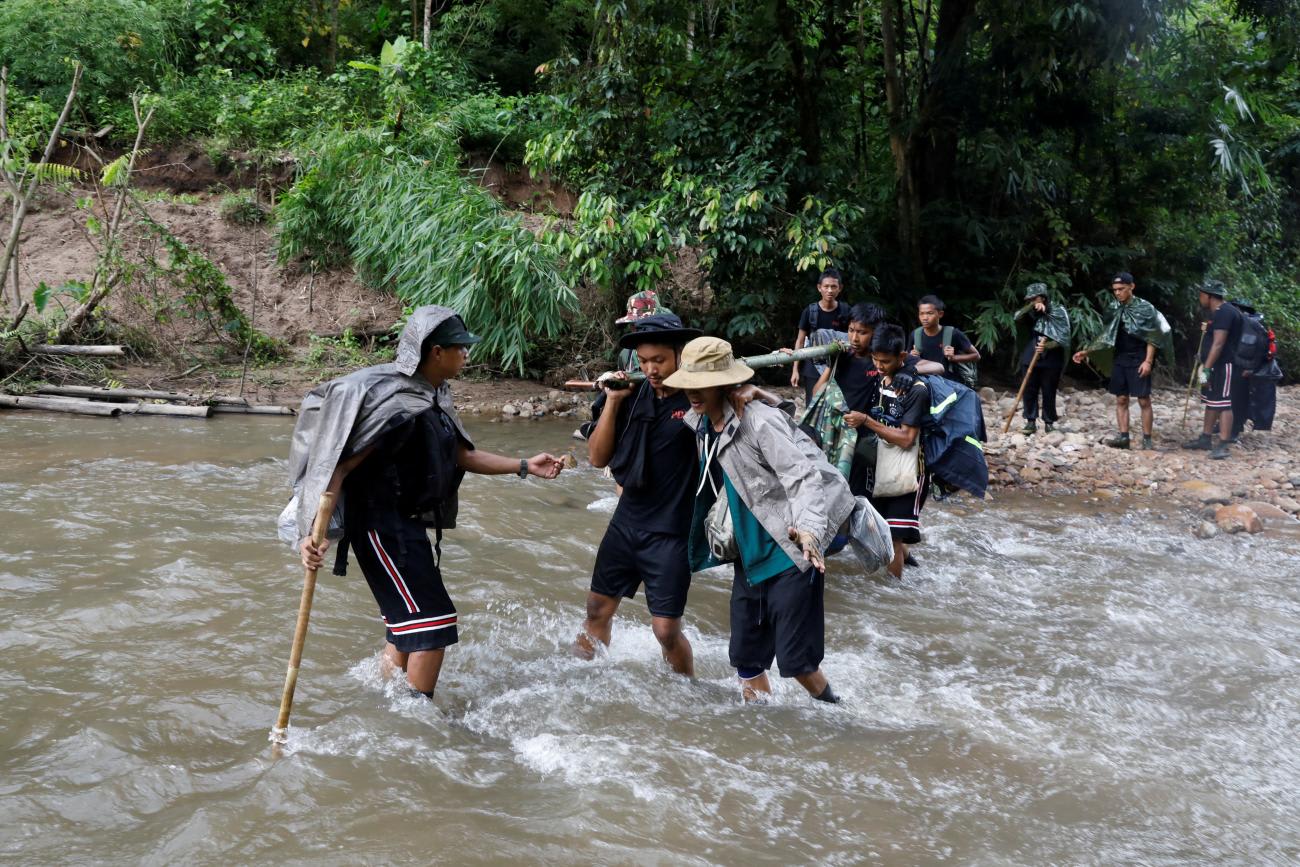
Karenni State is just north of Karen State — where a malaria outbreak had been under way since November of 2022. But most of the outbreak in Karen was from the parasite known as Plasmodium vivax, which causes serious disease but has a low mortality. The current outbreak is Plasmodium falciparum, which is also known as cerebral malaria. Falciparum has a significant mortality rate and a propensity for resistance.
Think Global Health: Why is this new outbreak particularly alarming?
Chris Beyrer: It is concerning because the falciparum in the country is already resistant to the artesunate class of drugs — a first-line drug for treatment of severe malaria. The security threat that this strain could be resistant to the combination therapy is real.
We're also concerned about what appears to be happening to people living with HIV. Myanmar has a severe HIV epidemic and patients are turning up on the Thai-Myanmar border with advanced clinical disease. Treatment for HIV and childhood immunizations have been interrupted, and concern is building about a possible measles outbreak in displaced children. Burma is swiftly moving toward failed state status, if it isn't already a failed state.
Think Global Health: From what you know about the conflict and what's going on with the malaria spread in the high risk regions, what is the first step to stemming the transmission of falciparum?
Chris Beyrer: An immediate cease-fire and the cessation of bombing of civilians in these areas would be essential. Right now, almost no entity has humanitarian access. So whatever you think could be useful to curb malaria can't be in the context of aerial bombardment of civilians. Of course, the junta has closed down the media. That's why there's so little reporting. They've shut down the internet and humanitarian aid organizations — including the United Nations — have essentially no access.
The UN cannot deliver. The ethnic health organizations along the borders can deliver and they should be supported to do that.
The only real way to provide care and services right now is through cross-border groups, including along the Thai-Myanmar border, the India-Myanmar border, and the China-Myanmar border where malaria supplies, bed nets, combination malaria preventive therapy, and so on could get in. It's important to provide all of those supplies to the displaced populations, but the UN and the other players are going to have work with ethnic health organizations because nobody else has access to these areas. Many of these ethnic health groups are outlawed by the junta, and they are not particularly supported by the host countries like China and Thailand. Nevertheless, they are the best option.
When Myanmar last had a malaria outbreak, very similar to this one, in 2006 and 2007, during a period of open fighting in this area of eastern Myanmar, I worked with many of these cross-border groups, and it truly was the only way to get services and goods into the country.
Think Global Health: What should the international support to those ethnic health organizations look like?
Chris Beyrer: The US Congress has passed the James M. Inhofe National Defense Authorization Act for Fiscal Year 2023—a modified version of the 2021 BURMA Act—to the House Appropriations Committee. The request was for $200 million. It looks as if the administration is only going to fund about $15 million, which is a trivial sum. More than ten million people need humanitarian assistance—including malaria prevention, treatment, and care—and $15 million is not going to go very far.
I think it's incumbent on the Biden administration to review its policies for Congress to increase the funding allocation there. People need to get real about who can deliver. The UN cannot deliver. The ethnic health organizations along the borders can deliver and they should be supported to do that.
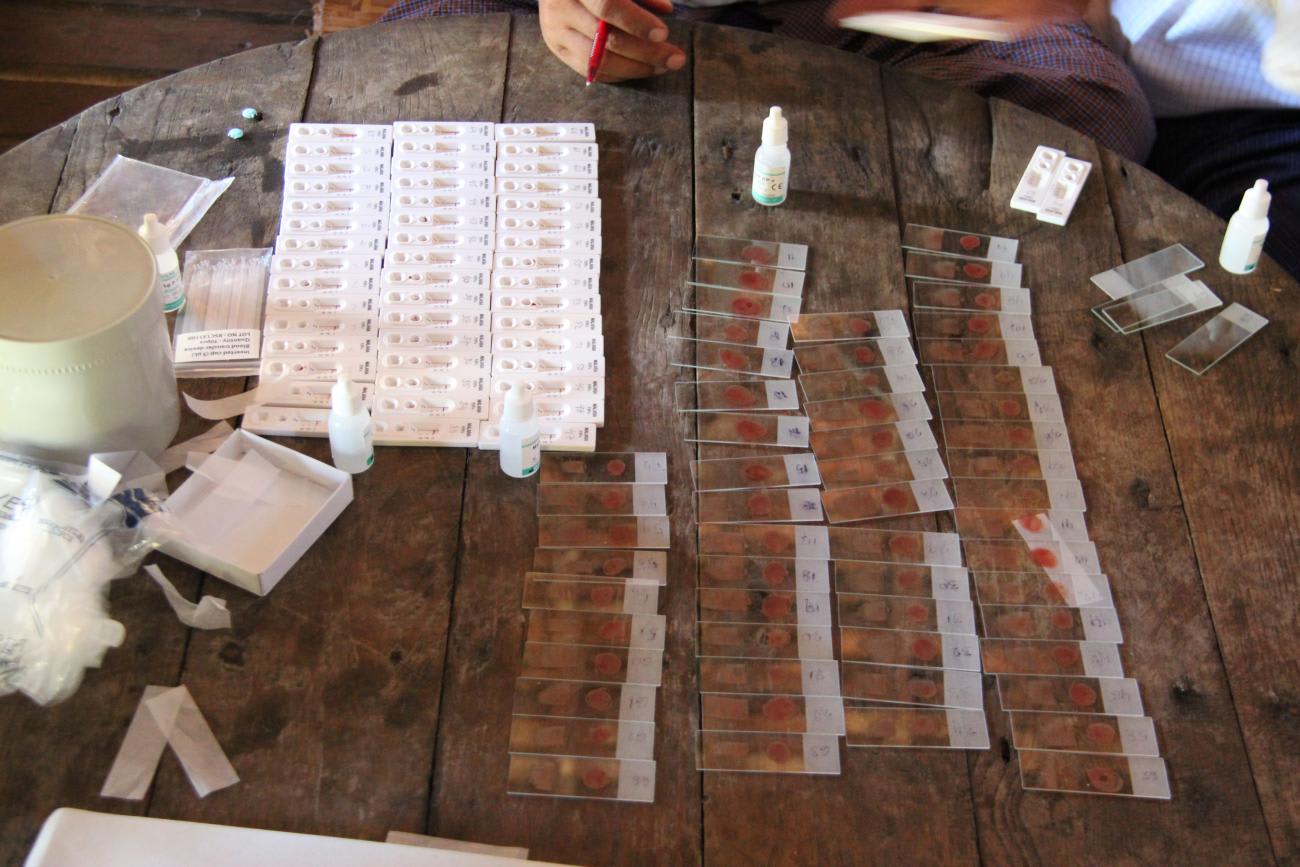
USAID has supported the cross-border efforts from the Thai-Myanmar border side. An ASEAN health group that represents all the countries in ASEAN, including Myanmar, could play a more active role. A number of countries in ASEAN have achieved malaria control, including Thailand. The expertise is there.
Think Global Health: What is the risk of this outbreak spreading to neighboring countries and who is most at risk?
Chris Beyrer: The resistant falciparum malaria has emerged across into Thailand from Myanmar, as it did previously across the Thai-Cambodian border, but no evidence suggests such a spread right now. We're most concerned about what's going on in Myanmar. China is also likely at risk. If this strain were to continue to spread, many people would be seeking treatment in Thailand. Because Thailand is a major tourist destination, we're always concerned in this era of international travel about how easy it is for resistant microbes and parasites to spread. So, no, I don't think any evidence indicates that good containment measures are in place.
At the moment, combination therapy is still working. The concern is that if this outbreak continues in this conflict zone, where displacement is so prevalent and the health system is so broken, resistance could emerge — rendering combination therapy ineffective. It, meaning resistance, hasn't emerged yet, but the context of this civil war, with endemic malaria and hundreds of thousands of displaced civilians, makes it likely to happen and pregnant women and infants are of course the most likely to die.

